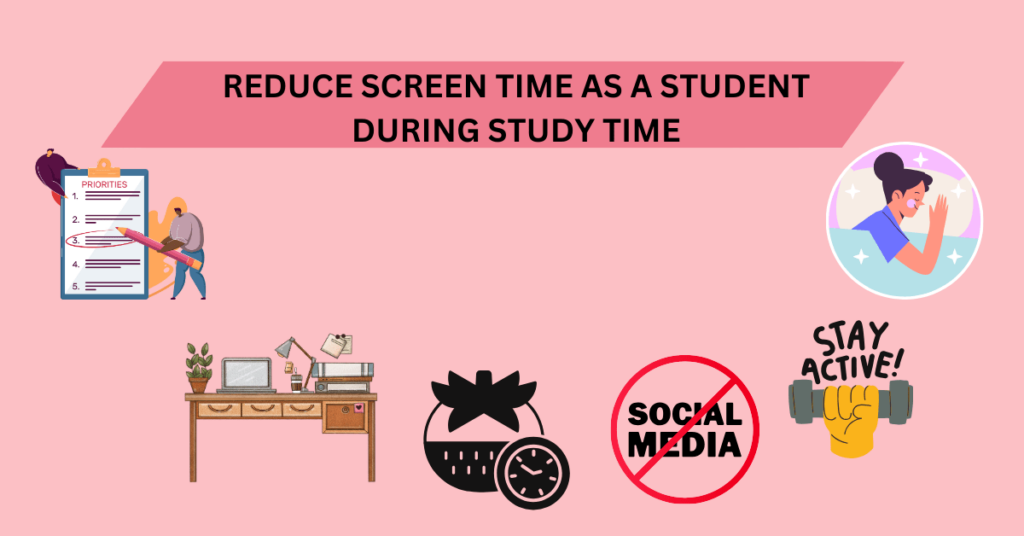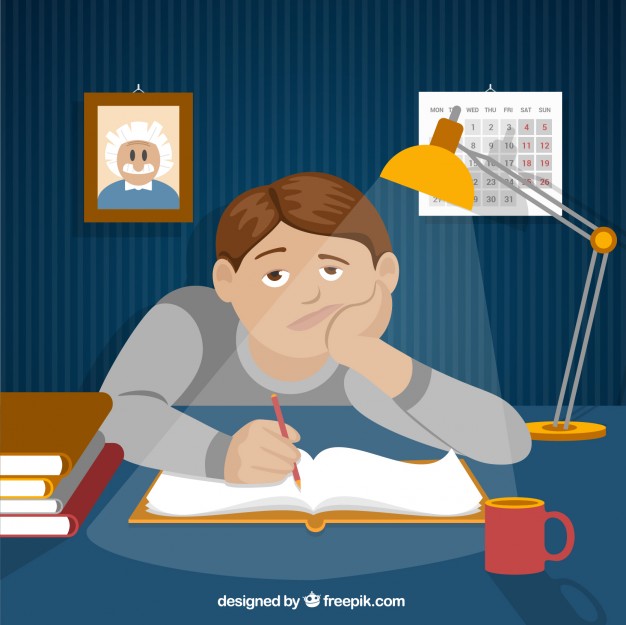Hey there, fellow students! We all know how screens have become an inseparable part of our lives. From checking Instagram stories to watching the latest Netflix series, screens are everywhere, and they’re oh-so-addictive. But when it’s time to buckle down and study, these digital distractions can seriously derail our focus and productivity. If you’re struggling to stay on track, don’t worry—you’re not alone. Here are some practical and enjoyable tips to help you reduce screen time and make your study sessions more effective.
1. Set Clear Goals and Prioritize Tasks
Let’s start with a bit of planning magic. Before you dive into your books, take a few minutes to outline what you need to accomplish. Break your tasks into smaller, manageable chunks and prioritize them. Writing down your goals not only gives you a clear direction but also a sense of achievement as you tick off each task. And guess what? Using a traditional paper planner or a bullet journal can be incredibly satisfying and keeps you away from the temptation of digital planners.
2. Create a Cozy Study Nook
Having a dedicated study space can make a world of difference. Choose a spot in your home that’s quiet and free from distractions. Make it cozy with comfortable seating, good lighting, and all your study essentials at hand. Keep your study area tidy and organized. Most importantly, keep your gadgets out of sight. This way, your brain gets the message that this space is for serious work, not for checking your phone every five minutes.
3. Try the Pomodoro Technique
Meet your new best friend: the Pomodoro Technique. This time management method involves studying for 25 minutes, then taking a 5-minute break. After four cycles, take a longer break of 15-30 minutes. Use these short breaks to stretch, grab a snack, or even do a quick dance around the room. Just make sure you step away from screens during your breaks to give your eyes a much-needed rest. This technique not only boosts productivity but also helps in breaking down the study time into manageable parts.
4. Limit Social Media Temptation
We all know the black hole that is social media. One minute you’re checking a friend’s post, and the next thing you know, an hour has gone by. To curb this, try using apps that block social media or limit your time on these platforms. Schedule specific times for checking social media—perhaps during your longer Pomodoro breaks. This way, you can stay connected without letting it interfere with your study time.
5. Turn Off Notifications
Notifications are like little gremlins that love to steal your focus. They ping, buzz, and flash, drawing your attention away from your studies. Switch them off while you’re in study mode. Enable “Do Not Disturb” mode or use apps designed to block notifications temporarily. Trust me, you won’t miss anything critical, and your study sessions will be much more productive without those constant interruptions.
6. Print Study Materials
Whenever possible, print out your study materials. There’s something about highlighting and taking notes on paper that helps information stick better. Plus, it’s a great way to reduce screen glare and give your eyes a break from staring at a screen. You can even create a colorful and engaging study guide with different pens and highlighters, making the study process more enjoyable.
7. Take Digital Detox Breaks
Schedule regular digital detox periods where you completely disconnect from screens. Use this time to engage in activities that relax and refresh you. Read a physical book, go for a walk, or try out a new hobby like drawing or cooking. A digital detox can recharge your brain and improve your focus when you get back to your studies. It’s amazing how much more productive you can be after giving your mind a proper rest.
8. Use Offline Resources
Remember libraries? They’re treasure troves of knowledge! Take advantage of offline resources like books, journals, and study guides. Visit your local library to access materials that can aid your learning without the need for screens. Offline resources often provide a depth of information that can be incredibly beneficial for your studies.
9. Stay Active
Physical activity is crucial for maintaining a healthy mind and body. Incorporate some exercise into your daily routine to break up your study sessions. Whether it’s yoga, a quick jog, or even a few jumping jacks, staying active helps reduce the negative effects of prolonged screen time. Plus, exercise can improve your concentration and overall well-being, making it easier to focus when you sit down to study.
10. Get a Good Night’s Sleep
Good sleep is essential for effective studying. Lack of sleep can make you more prone to wasting time on screens because it’s harder to focus. Establish a regular sleep schedule and create a relaxing bedtime routine that excludes screens to ensure you’re well-rested. This will help you wake up refreshed and ready to tackle your studies with a clear mind.
How TheTuitionTeacher Can Help
Here’s the best part: you don’t have to navigate this alone. TheTuitionTeacher is here to help you stay on track and reduce screen time effectively. They connect you with experienced tutors for one-on-one, in-home tutoring sessions. These sessions are all about you—customized study plans, printed materials, and engaging teaching methods that minimize the need for digital devices. Tutors can provide hands-on help with subjects you’re struggling with, offer new perspectives, and help you develop effective study habits. With TheTuitionTeacher, you can focus on your studies in a structured, screen-free environment and achieve your academic goals with ease. To hire a personal home tutor call now at 8573666999 or post your tuition request here https://thetuitionteacher.com/request-a-tutor/
So, give these tips a try and see how much more productive and focused you can be. Remember, reducing screen time is not just about cutting back; it’s about creating a balanced approach to your study routine that enhances your overall learning experience. Happy studying, and don’t forget to take those well-deserved breaks!







